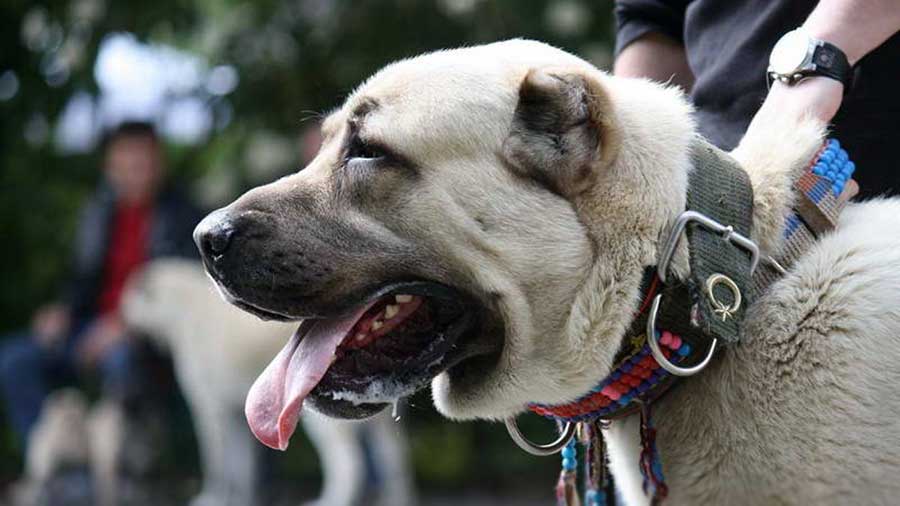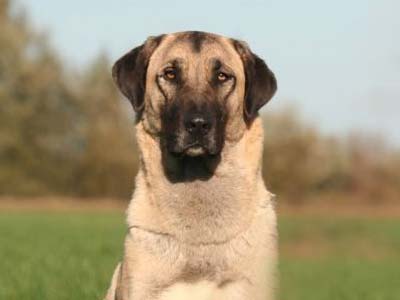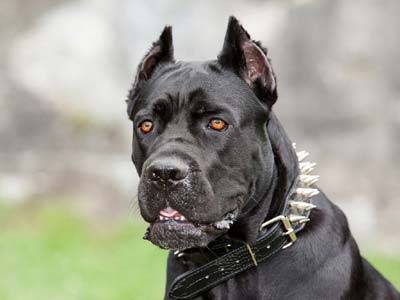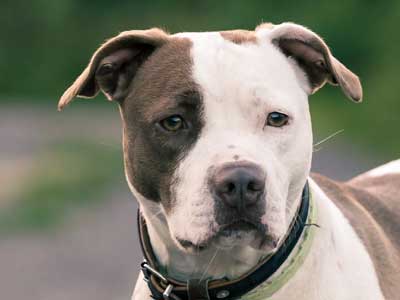Kangal Dog
Breed Information |
|
|---|---|
| Popularity |
2022: # 2021: # 2020: # 2019: # 2018: # 2017: # 2016: # 2015: # |
| Name | Kangal Dog |
| Other names | Sivas Kangal, Turkish Kangal |
| Origin |  Turkey Turkey |
| Breed Group |
Guardian Dog (UKC) |
| Size | Giant |
| Type | Purebred |
| Life span | 12-15 years |
| Temperament |
Alert Calm Independent Protective Self-controlled Sensitive |
| Height |
Male: 30-32 inches (77-86 cm) Female: 28-30 inches (72-77 cm) |
| Weight |
Male: 110-145 pounds (50-66 kg) Female: 90-120 pounds (41-54 kg) |
| Colors |
Black Cream Gray |
| Litter Size | 5-10 puppies |
| Puppy Prices |
Average $1200 - $2500 USD The rareness of the breed also drive up its prices; a single Kangal pup may cost anywhere from $1,200 to $4,000. If you’re interested in owning one of this breed, make sure to find out about any breed-specific laws in your area. |
Breed Characteristics |
|
|---|---|
| Adaptability |
3 stars |
| Apartment Friendly |
1 stars The Kangal Dog is not recommended for apartment life. It is relatively inactive indoors and will do best with at least a large yard. The Kangal Dog is naturally protective, but is more "people oriented" than most other livestock guardian breeds. A well-socialized Kangal Dog is not generally aggressive to people, and especially loves children—but the breed does not recognize property boundaries. It will wander, attack stray dogs, and may be aggressive to human intruders, especially at night. Good fencing is therefore essential. |
| Barking Tendencies |
2 stars Occassional |
| Cat Friendly |
3 stars |
| Child Friendly |
4 stars Good with Kids: This is a suitable breed for kids and is known to be playful, energetic, and affectionate around them. |
| Dog Friendly |
2 stars |
| Exercise Needs |
3 stars This breed needs exercise and mental stimulation. Working dogs with acreage will exercise themselves by patrolling the property and protecting their livestock. Family dogs need daily walks, jogs or runs and socialization off-property, because if there is no work to do they will not get adequate mental and physical exercise and may become hard to handle. |
| Grooming |
3 stars Moderate Maintenance: Regular grooming is required to keep its fur in good shape. |
| Health Issues |
3 stars Hypoallergenic: No |
| Intelligence |
2 stars Ranking: (N/A) Full Ranking List |
| Playfulness |
3 stars |
| Shedding Level |
5 stars The coat needs thorough brushing-out during the twice a year shedding season. You can get away with little attention the rest of the year. The Kangal Dog is a seasonal, heavy shedder. |
| Stranger Friendly |
3 stars |
| Trainability |
3 stars |
| Watchdog Ability |
5 stars |
Kangal Dog Names |
||
|---|---|---|
| Rank | Boy Names | Girl Names |
| 01 | Charlie | Bella |
| 02 | Toby | Piper |
| 03 | Jack | Lilly |
| 04 | Bear | Molly |
| 05 | Buddy | Lulu |
| 06 | Duke | Zoey |
| 07 | Jake | Coco |
| 08 | Dexter | Layla |
| 09 | Buster | Dixie |
| 10 | Oliver | Gracie |
| 100 Cute Puppy Names › | ||
Overview |
|---|
|
The Kangal Dog is a large, powerful, heavy-boned dog, whose size and proportions have developed naturally as a result of its continued use in Turkey as a guardian against predators. The head is large and moderately wide with drop ears. A properly proportioned Kangal Dog is slightly longer (measured from prosternum to point of buttocks) than tall (measured from the withers to the ground), and length of the front leg (measured from point of elbow to the ground) should equal slightly more than one-half of the dog’s height. The tail, which is typically curled, completes the distinctive silhouette. The Kangal Dog has a double coat that is moderately short and quite dense. The Kangal Dog has a black mask and black velvety ears that contrast with a whole body color which may range from light dun to gray. Honorable scars or other evidences of injury resulting from working in the field are not to be penalized. The Kangal dog is calm, controlled, independent, powerful and protective. They may be aloof towards strangers, but a well-socialized Kangal Dog is friendly with visitors and especially children. They must never be shy or vicious. A well-trained Kangal is sensitive and alert to changing situations, responding to threats with judicious warnings and courageous action if necessary. They make good guardians of livestock and humans alike, but they may not be suitable for inexperienced dog owners, as the independent intelligence of the Kangal makes for a difficult pupil. |
History |
|
The Kangal Dog is an ancient flock-guarding breed, thought to be related to the early mastiff-type dogs depicted in Assyrian art. The breed is named for the Kangal District of Sivas Province in Central Turkey where it probably originated. Although the breed has long been associated with the family of the Aga of Kangal, large landholders, and chieftains, the majority are bred by villagers who take great pride in the dogs’ ability to guard their flocks of sheep and goats from such traditional predators as the wolf, bear, and jackal. The relative isolation of the Sivas-Kangal region has kept the Kangal Dog free of cross-breeding and has resulted in a natural breed of remarkable uniformity in appearance, disposition, and behavior. Despite its regional origin, many Turks consider the Kangal Dog as their national dog. The Turkish government and academic institutions operate breeding kennels where Kangal Dogs are bred and pedigrees are carefully maintained. The Kangal Dog has even appeared on a Turkish postage stamp. The Kangal Dog was first reported in European and North American canine literature by David and Judith Nelson, Americans who studied the dogs while resident in Turkey. The Nelsons imported their first Kangal Dog to the United States in 1985. This dog, and subsequent imports, provided the foundation for the Kangal Dog in the United States. |
References
- [1] ^ YouTube: TURKISH KANGAL DOG - WOLF KILLER OR PET?
- [2] ^ YouTube: ALL ABOUT THE KANGAL DOG: THE FINEST GUARDIAN DOG





